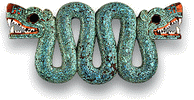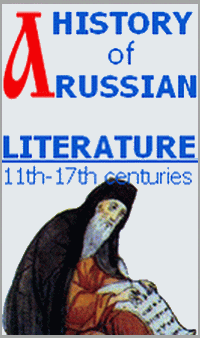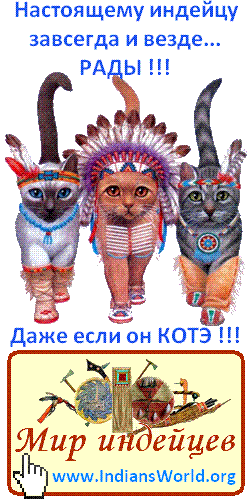XV. TEZOZOMOCTLI IC MOTECPAC.
|
XV. THE REIGN OF TEZOZOMOCTLI.
|
|
1. Zan ca tzihuactitlan, mizquititlan, aiyahue Chicomoztocpa, mochi
ompa yahuitze antlătohuan ye nican, ohuaya, ohuaya.
|
1. From the land of the tzihuac bushes, from the land of the mezquite
bushes, where was ancient Chicomoztoc, thence came all your rulers
hither.
|
|
2. Nican momalinaco in colcahuahtecpillotl huiya nican milacatzoa in
Colhuaca Chichimecayotl in toteuchuahuia.
|
2. Here unrolled itself the royal line of Colhuacan, here our nobles
of Colhuacan, united with the Chichimecs.
|
|
3. Ma oc achitzinca xomotlanecuican antepilhuan huiya tlacateuhtzin
Huitzilihuitl a ya cihuacoatl y Quauhxilotl huia totomihuacan
Tlalnahuacatl aya zan ca xiuhtototl Ixtlilxochitl y quenman
tlatzihuiz quimohmoyahuaquiuh yauh y tepeuh yehuan Dios ica ye choca
Tezozomoctli ohuaya ohuaya.
|
3. Sing for a little while concerning these, O children, the
sovereign Huitzilihuitl, the judge Quauhxilotl, of our bold leader
Tlalnahuacatl, of the proud bird Ixtlilxochitl, those who went forth,
and conquered and ruled before God, and bewail Tezozomoctli.
|
|
4. Yenoceppa mizquitl yacahuantimani Hueytlalpani, anquican itlatol
yehuan Dios a ohuaya, ohuaya.
|
4. A second time they left the mezquite bushes in Hue Tlalpan,
obeying the order of God.
|
|
5. Can onyeyauh xochitl, can oyeyauh yeh intoca quauhtli ocelotl huia
ya moyahuaya xelihuia Atloyantepetl Hueytlalpan y anquizan itlatol
ipalnemohua ohuaya ohuaya.
|
5. They go where are the flowers, where they may gain grandeur and
power, dividing asunder they leave the mountain Atloyan and Hue
Tlalpan, obeying the order of the Giver of Life.
|
|
6. Oncuiltonoloc, onechtlachtiloc, in teteuctin cemanahuac y huel
zotoca huipantoca y tlătol ipalnemohuani, huel quimothuitico, huel
quiximatico y yollo yehuan Dios huiya chalchihuitl maquiztliya
tlamatelolliya tizatla ihuitla za xochitl quimatico yaoyotla ohuaya
ohuaya.
|
6. It is cause of rejoicing, that I am enabled to see our rulers from
all parts gathering together, arranging in order the words of the
Giver of Life, and that their souls are caused to see and to know
that God is precious, wonderful, a sweet ointment, and that they are
known as flowers of wise counsel in the affairs of war.
|
|
7. Oya in Tochin y miec acalcatli, Acolmiztlan teuctli zan Catocih
teuctli Yohuallatonoc y yehuan Cuetzpaltzin Iztaccoyotl totomihuacan
Tlaxcallan ohuaye Coatziteuctli Huitlalotzin za xochitl quimatico
yaoyotla ohuaya ohuaya.
|
7. There were Tochin, with many boats, the noble Acolmiztlan, the
noble Catocih, Yohuallatonoc, and Cuetzpaltzin, and Iztaccoyotl, bold
leaders from Tlaxcalla, and Coatziteuctli, and Huitlalotzin, famed as
flowers on the field of battle.
|
|
8. Tley an quiyocoya anteteuctin y Huexotzinca? ma xontlachiacan
Acolihuăcan in quatlapanca oncan ye Huexotla itztapallocan huia
yeyahuatimani Atloyantepetl a ohuaya.
|
8. For what purpose do you make your rulers, men of Huexotzinco? Look
at Acolhuacan where the men of Huexotzinco are broken with toil, are
trod upon like paving stones, and wander around the mountain Atloyan.
|
|
9. Oncan in pochotl ahuehuetl oncan icaca mizquitl ye oztotlhuiă
tetlaquahuac quimatia ipalnemohuani oyao ai ya hue ohuaya.
|
9. There is a ceiba tree, a cypress tree, there stands a mezquite
bush, strong as a cavern of stone, known as the Giver of Life.
|
|
10. Tlacateotl nopiltzin Chichimecatl y tleonmach itla techcocolia
Tezozomoctli tech in micitlani ye ehuaya atayahuili quinequia yaoyotl
necaliztlon quima Acolhuacan ohuaya.
|
10. Ruler of men, Nopiltzin, Chicimec, O Tezozomoctli, why hast thou
made us sick, why brought us to death, through not desiring to offer
war and battle to Acolhuacan?
|
|
11. Tel ca tonehua ticahuiltia ipalnemohuani Colihua o o Mexicatl y
tlahcateotl huiaya atayahuili quinequia yaoyotl necaliztl qui mana
Acolhuacan a ohuaya ohuaya.
|
11. But we lift up our voice and rejoice in the Giver of life; the
men of Colhuacan and the Mexican leader have ruined us, through not
desiring to offer war and battle to Acolhuacan.
|
|
12. Zan ye on necuiltonolo in tlalticpac ay oppan titlano chimalli
xochitl ay oppan ahuiltilon ipalnemohua; ye ic anauia in tlailotlaqui
xayacamacha huia ho ay ya yi ee ohuaya ha ohuaya.
|
12. The only joy on earth will be again to send the shield-flower,
again to rejoice the Giver of Life; already are discontented the
faces of the workers in filth.
|
|
13. Inacon anquelehuia chimalli xochitl y yohual xochitli
tlăchinol xochitl; ye ic neyahpanalo antepilhuan huiya
Quetzalmamatzin Huitznahuacatl ohuaye ho ha yia yi ee oua yi aha
ohuaya.
|
13. Therefore you rejoice in the shield-flowers, the flowers of
night, the flowers of battle; already are ye clothed, ye children of
Quetzalmamatzin and Huitznahuacatl.
|
|
14. Chimal tenamitl oncan in nemohua yehua necalia huilotl oyahualla
icahuaca yehuaya on canin ye nemi in tecpipiltin Xiuhtzin
xayacamachani amehuano o anconahuiltia ipalnemohua ohuaya.
|
14. Your shield and your wall of safety are where dwells the sweet
joy of war, where it comes, and sings and lifts its voice, where
dwell the nobles, the precious stones, making known their faces; thus
you give joy to the Giver of Life.
|
|
15. In ma huel netotilo mannemamanaloya yaonahuac a on
netlamachtiloyan ipan nechihuallano ohuaye in tepiltzin can ye
mocuetlaca ohuaya, ohuaya.
|
15. Let your dancing, and banqueting be in the battle, there be your
place of gain, your scene of action, where the noble youths perish.
|
|
16. Quetzalipantica oyo huiloa ahuiltiloni ipalnemohuan yectlahuacan
in tapalcayocan a ohuaya ohuaya.
|
16. Dressed in their feathers they go rejoicing the Giver of Life to
the excellent place, the place of shards.
|
|
17. Oyo hualehuaya ye tocalipan oyohua yehua Huexotzincatl y
tototihua o o Iztaccoyotla ohuaya ohuaya.
|
17. He lifted up his voice in our houses like a bird, that man of
Huexotzinco, Iztaccoyotl.
|
|
18. Ace melle ica tonăcoquiza y nican topantilemonti Tlaxcaltecatl
itocoya cacalia in altepetl y Huexochinco ya ohuaya.
|
18. Whoever is aggrieved let him come forth with us against the men
of Tlaxcallan, let him follow where the city of Huexotzinco lets
drive its arrows.
|
|
19. Cauhtimanizo polihuiz tlalli yan totomihuacan huia cehuiz yiollo
o antepilhuan a Huexotzinca y ohuaya ohuaya.
|
19. Our leaders will lay waste, they will destroy the land, and your
children, O Huexotzincos, will have peace of mind.
|
|
20. Mizquitl y mancan tzihuactli y mancan ahuehuetl onicacahuia
ipalnemohua, xonicnotlamati mochi elimanca Huexotzinco ya zanio oncan
in huel on mani tlalla ohuaya ohuaya.
|
20. The mezquite was there, the tzihuac was there, the Giver of Life
has set up the cypress; be sad that evil has befallen Huexotzinco,
that it stands alone in the land.
|
|
21. Zan nohuian tlaxixinia tlamomoyahua y ayoc anmocehuia
momăcehual y hualcaco mocuic in icelteotl oc xoconyocoyacan
antepilhuan a ohuaya ohuaya.
|
21. In all parts there are destruction and desolation, no longer are
there protection and safety, nor has the one only God heard the song;
therefore speak it again, you children;
|
|
22. Zan mocuepa itlatol conahuiloa ipalnemohua Tepeyacac ohuaye
antepilhuan ohuaya ohuaya.
|
22. That the words may be repeated, you children, and give joy to the
Giver of Life at Tepeyacan.
|
|
23. Canel amonyazque xoconmolhuican an Tlaxcalteca y Tlacomihuatzin
hui oc oyauh itlachinol ya yehuan Dios a ohuaya.
|
23. And since you are going, you Tlaxcallans, call upon
Tlacomihuatzin that he may yet go to this divine war.
|
|
24. Cozcatl ihuihui quetzal nĕhuihuia oc zo conhuipanque zan
Chichimeca y Totomihua a Iztaccoyotl a ohuaya ohuaya.
|
24. The Chichimecs and the leaders and Iztaccoyotl have with
difficulty and vain labor arranged and set in order their jewels and
feathers.
|
|
25. Huexotzinco ya zan quiauhtzinteuctli techcocolia Mexicatl
itechcocolia Acolihuiao ach quennelotihua tonyazque quenonamican a
ohuaye ohuaye.
|
25. At Huexotzinco the ruler Quiauhtzin hates the Mexicans, hates the
Acolhuacans; when shall we go to mix with them, to meet them?
|
|
26. Ay antlayocoya anquimitoa in amotahuan an teteuctin ayoquantzin
ihuan a in tlepetztic in cacha ohuaya tzihuacpopoca yo huaya.
|
26. Set to work and speak, you fathers, to your rulers, to your
lords, that they may make a blazing fire of the smoking tzihuac wood.
|
|
27. Ca zan catcan Chalco Acolihuaca huia totomihuacan y amilpan in
Quauhquecholla quixixinia in ipetl icpal yehuan Dios ohoaya ohuaya.
|
27. The Acolhuacans were at Chalco, the Otomies were in your
cornfields at Quauhquechollan, they laid them waste by the permission
of God.
|
|
28. Tlazoco a ye nican tlalli tepetl yecocoliloya cemanahuac a
ohuaya.
|
28. The fields and hills are ravaged, the whole land has been laid
waste.
|
|
29. Quennel conchihuazque atl popoca itlacoh in teuctli tlalli
mocuepaya Mictlan onmatia Cacamatl onteuctli, quennel conchihuazque,
ohuaya ohuaya.
|
29. What remedy can they turn to? Water and smoke have spoiled the
land of the rulers; they have gone back to Mictlan attaching
themselves to the ruler Cacamatl. What remedy can they turn to?
|


